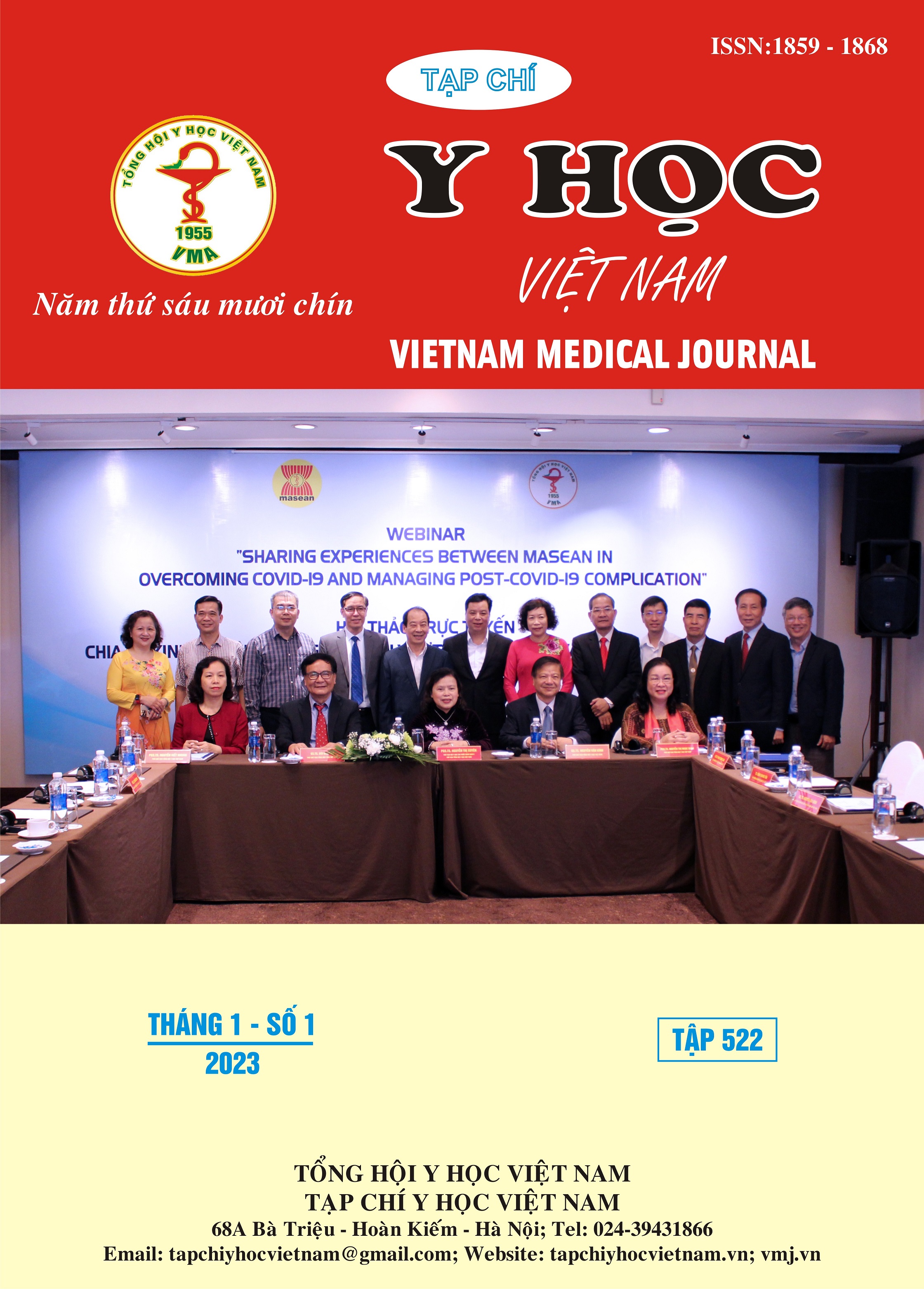ASSESSMENT OF SLEEP QUALITY BY PSQI SCALE IN PATIENTS WITH CHRONIC HEART FAILURE
Main Article Content
Abstract
Background: Sleep disorders in patients with chronic heart failure are very common, it can significantly affect the daily activities of patients, but also have a great impact on the care and treatment of the disease, making health is declining. Purpose of the Study: This study was performed to evaluate sleep quality, its effect on patients with heart failure, and its predictors in heart failure patients. Methods: A cross-sectional descriptive study, performed on a sample size of 251 chronic heart failure patients examined and treated inpatient at Bach Mai Heart Institute from August 2021 to September 2022. These patients completed a demographic questionnaire, and their sleep quality was measured using the Pittsburgh Sleep Quality Index (PSQI). One-way analysis of variance (ANOVA), Kruskal-Wallis test, t-test and Linear regression were used for data analysis. Results: 78,5% of patients (n = 197) reported poor sleep quality (PSQI > 5). The range of global PSQI scores was 3–19, suggesting that all patients had at least one sleep-related problem. Also, a significant relationship was found between PSQI scores and patients’ age (p<0.001), educational level (p< 0.001), occupational status (p< 0.038), number of hospitalizations (p< 0.005), non-cardiac diseases (p< 0.001), diuretic use (p< 0.021) and left ventricular ejection fraction (p< 0.015). Three predictors were identified using regression analyses with stepwise methods, and included age, type of referral and educational level. Conclusion: The very high percentage of patients with poor sleep quality indicates the severity of sleep disturbance in heart failure patients in Vietnam. There are many factors associated with sleep quality and sleep disturbances that doctors, nurses and health authorities need to be aware of in order to improve and manage them effectively.
Article Details
Keywords
PSQI, Heart Failure, Sleep quality
References
2. Mosterd A, Hoes AW. Clinical epidemiology of heart failure. Heart (British Cardiac Society). Sep 2007;93(9):1137-46. doi:10.1136/hrt.2003.025270
3. Flather MD, Yusuf S, Køber L, et al. Long-term ACE-inhibitor therapy in patients with heart failure or left-ventricular dysfunction: a systematic overview of data from individual patients. ACE-Inhibitor Myocardial Infarction Collaborative Group. Lancet (London, England). May 6 2000; 355 (9215): 1575-81. doi:10.1016/s0140-6736 (00)02212-1
4. Maggioni AP, Dahlström U, Filippatos G, et al. EURObservational Research Programme: regional differences and 1-year follow-up results of the Heart Failure Pilot Survey (ESC-HF Pilot). European journal of heart failure. Jul 2013;15(7):808-17. doi:10.1093/eurjhf/hft050
5. Zambroski CH, Moser DK, Bhat G, Ziegler C. Impact of symptom prevalence and symptom burden on quality of life in patients with heart failure. European journal of cardiovascular nursing. Sep 2005;4(3):198-206. doi:10.1016/ j.ejcnurse.2005.03.010
6. Buysse DJ, Reynolds CF, 3rd, Monk TH, Berman SR, Kupfer DJ. The Pittsburgh Sleep Quality Index: a new instrument for psychiatric practice and research. Psychiatry research. May 1989;28(2):193-213. doi:10.1016/0165-1781(89)90047-4
7. Moradi M, Mehrdad N, Nikpour S, et al. Sleep quality and associated factors among patients with chronic heart failure in Iran. Medical journal of the Islamic Republic of Iran. 2014;28:149.
8. Chen HM, Clark AP, Tsai LM, Chao YF. Self-reported sleep disturbance of patients with heart failure in Taiwan. Nursing research. Jan-Feb 2009; 58(1):63-71. doi:10.1097/NNR.0b013e31818c3ea0
9. Erickson VS, Westlake CA, Dracup KA, Woo MA, Hage A. Sleep disturbance symptoms in patients with heart failure. AACN clinical issues. Nov 2003;14(4):477-87. doi:10.1097/00044067-200311000-00009
10. Malakouti SK, Foroughan M, Nojomi M, Ghalebandi MF, Zandi T. Sleep patterns, sleep disturbances and sleepiness in retired Iranian elders. International journal of geriatric psychiatry. Nov 2009;24(11):1201-8. doi:10.1002/gps.2246


